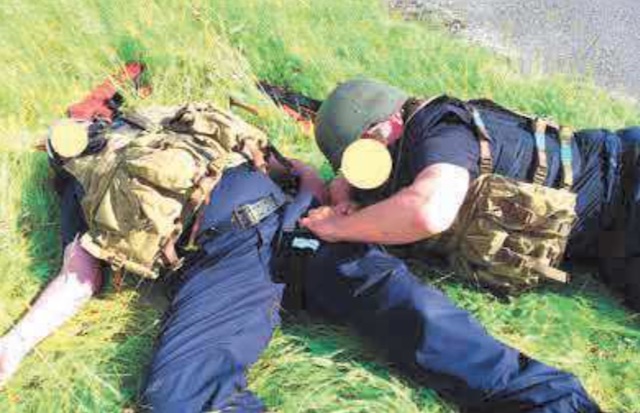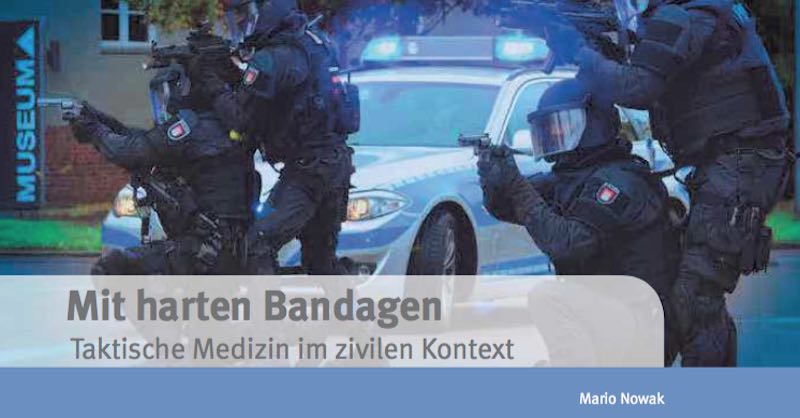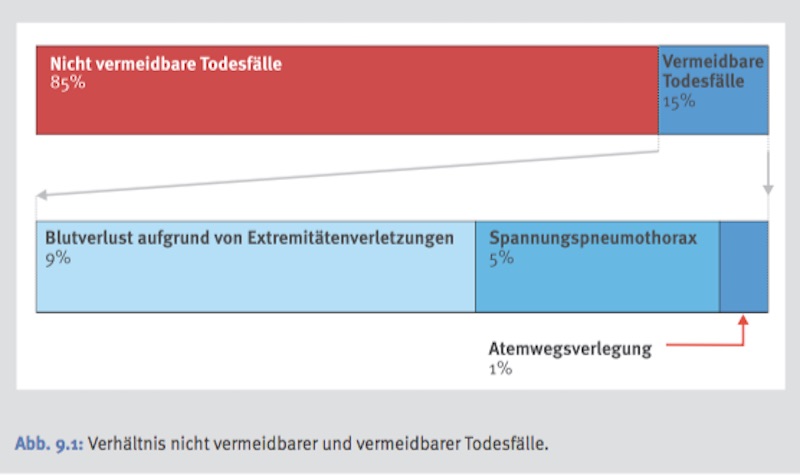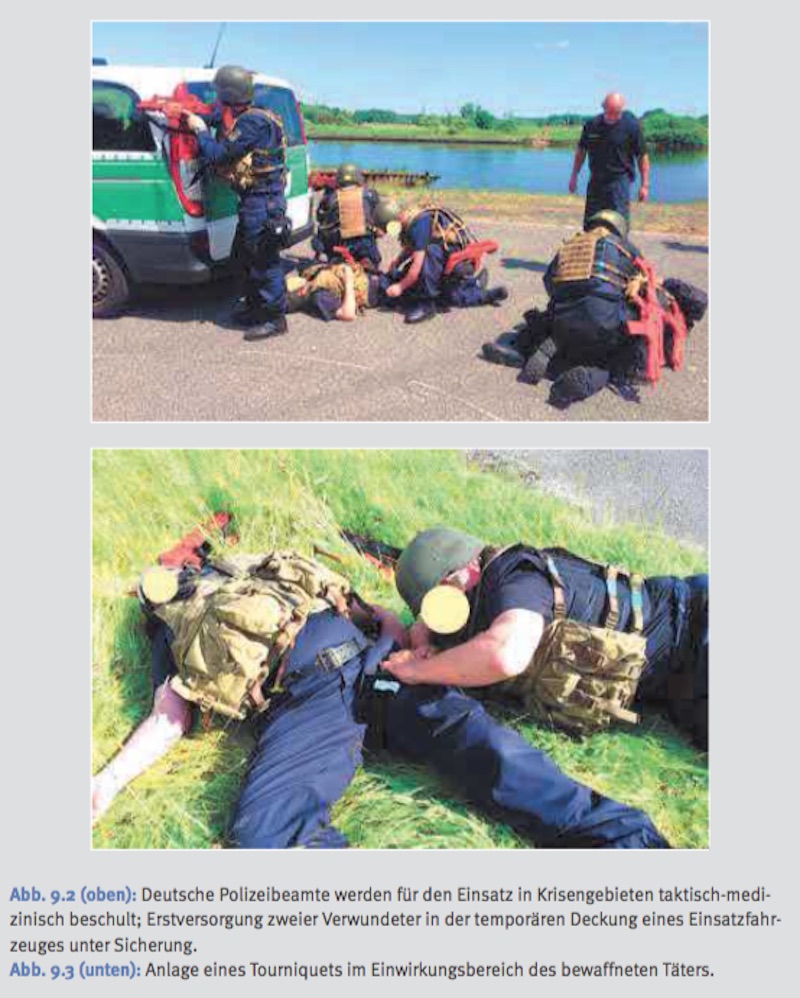Get the weekly SPARTANAT newsletter.
Your bonus: the free E-Book from SPARTANAT.

With tough bandages (2): Tactical Combat Casualty Care/Tactical Emergency Medical Support
This text discusses Tactical Combat Casualty Care (TCCC) and its civilian counterpart, Tactical Emergency Medical Support (TEMS). It examines the importance of tactical medicine in reducing combat deaths and the need for training in police forces. The text highlights the growing interest in basic tactical medical training among police officers and outlines the principles and initial measures taught in such courses.
When we talk about tactical medicine, we inevitably come across the term “Tactical Combat Casualty Care”, abbreviated as TCCC or T3C. This military terminology simply means the application of first aid from a tactical perspective in the immediate area of armed opponents. Since civilians generally struggle with military nomenclature and politics are always keen to neutralize police concepts in a citizen-friendly manner, in recent years the term “Tactical Emergency Medical Support” (TEMS) has been established in the civilian sector. In order to avoid a tedious debate about technicalities in this chapter as well, we can establish that both terminologies are almost synonymous in content. It's about tactical casualty care and emergency medicine. Whether a soldier or civilian, similar patterns of injuries in a hostile environment require identical initial measures. Statistical data from past armed conflicts have led to the conclusion that approximately 15% of combat deaths among combatants could have been avoided if the wounded comrades had taken the right initial measures at the right time. These 15% of so-called "avoidable causes of death" on the battlefield are divided into
Statistical data from past armed conflicts have led to the conclusion that approximately 15% of combat deaths among combatants could have been avoided if the wounded comrades had taken the right initial measures at the right time. These 15% of so-called "avoidable causes of death" on the battlefield are divided into
9% Blood loss due to limb injuries,
5% Tension pneumothorax,
1% Airway obstruction. The goal of TCCC is to significantly reduce these numbers. Through suitable equipment and appropriate training, as many potential first responders as possible should be able to perform life-saving initial measures on their injured comrades during ongoing combat operations, immediately after the damaging event.
The goal of TCCC is to significantly reduce these numbers. Through suitable equipment and appropriate training, as many potential first responders as possible should be able to perform life-saving initial measures on their injured comrades during ongoing combat operations, immediately after the damaging event.
In the area of police special units, the necessity of adopting tactical-medical principles was recognized relatively early on through constant exchange and joint training with military counterparts, and has been implemented nationwide in the Federal Republic of Germany. Even in the context of police foreign missions, German police officers sent to certain crisis regions have been trained in the basics of tactical first aid for years before their deployment.
Since the terrorist attacks in Paris in 2015 ("Charlie Hebdo", "Bataclan"), the topic of "TCCC" is now being discussed within the entire police force and there is an increased demand for training officers in the regular patrol service as well as the riot police, in other words: the potential users. However, decision-makers in the respective ministries are currently finding it difficult, so a widespread further training of the mentioned target group has not yet taken place. Nevertheless, the number of concerned police officers who have recognized the need for basic tactical medical training for themselves continues to rise, and they are educating themselves in their free time and obtaining the necessary equipment privately, at their own expense.
For you as a paramedic or emergency physician, this means that the chances are increasing steadily to encounter patients during a major incident, such as a terrorist attack or a mass shooting, on whom more or less intensive and professional life-saving initial measures have already been performed by trained tactical medical first responders. Therefore, it may be of interest to you to know how these security forces have been medically trained and what materials they use in operations. In the following, I will attempt to outline briefly and succinctly the principles and initial measures that are taught to these police operational forces in official or private courses.
Tactical Survival Concepts on the Internet: http://tacsurv.de
The series "Mit harten Bandagen" here on SPARTANAT:
Mit harten Bandagen (1): Tactical Medicine in Civil Context
Mit harten Bandagen (2): Tactical Combat Casualty Care/Tactical Emergency Medical Support
Mit harten Bandagen (3): The Procedure
Mit harten Bandagen (4): The Three Tactical Phases
Mit harten Bandagen (5): Tactical First Responders
Tactical Survival Concepts on the Internet: http://tacsurv.de
The entire article by Mario Nowak is published in the book "Interface Forensic Medicine: Police - Emergency Medical Services". Available here:
SPARTANAT is the online magazine for Military News, Tactical Life, Gear & Reviews.
Send us your news: [email protected]
Ad
similar
Get the weekly SPARTANAT newsletter.
Your bonus: the free E-Book from SPARTANAT.


